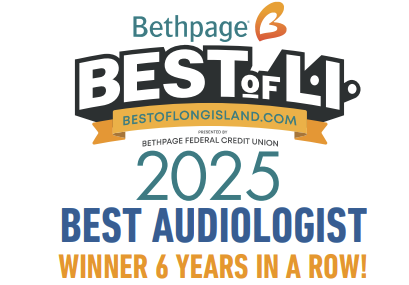
Discovering that an infant has hearing loss can be an upsetting and emotionally difficult experience for many parents, leaving them feeling lost and unclear about what the future holds. Infants with hearing loss can do well with early detection and intervention, which is good news. Indeed, they are able to acquiring linguistic abilities, refining their communication skills, and forming profound connections with their surroundings, inevitably bring about a rich and satisfying life.
Two of the most reliable solutions for assisting infants with hearing loss are hearing aids and cochlear implants. Below, we take a look at how they work and how to know which one is best for your child.
Comprehending Infant Hearing Loss
Hearing loss in infants can be caused by a variety of factors, including:
- Hereditary traits (even in the absence of a family background)
- Infections present at birth including cytomegalovirus (CMV) or rubella.
- Issues that may arise during childbirth, such as oxygen deprivation or premature birth.
- Medications often administered in the NICU (Neonatal Intensive Care Unit)
Early detection is critical. That’s why babies in the United States are evaluated for hearing loss before they leave the hospital. Pediatric hearing experts follow the “1-3-6” guideline:
- Screened by 1 month
- Diagnosed by 3 months
- Intervention (with hearing devices or therapy) started by 6 months
Meeting these milestones gives babies the best opportunity for strong speech, language, and brain development. If you need advice on these screenings, your pediatrician will be happy to help!
Hearing Aids for Babies and Toddlers
Hearing aids are usually the first treatment solution for babies who have varying degrees of hearing loss. These little, wearable devices boost sound, helping infants hear speech and external sounds more clearly.
Hearing aids are:
- Appropriate for infants just a few weeks old
- Designed with gentle, cozy earpieces that adjust according to the baby’s development
- Offering secure battery doors and child-friendly design features
- Specifically tailored by a pediatric hearing expert to fit your child’s distinct hearing needs
As your infant grows, hearing aids will need to be calibrated regularly to guarantee correct fit and performance.
Cochlear Implants for Infants
A cochlear implant may be recommended for a baby with extreme to profound sensorineural hearing loss who does not get sufficient benefit from hearing aids.
Unlike hearing aids, cochlear implants:
- Are surgically implanted
- Bypass damaged parts of the inner ear
- Translate sound into electrical signals that stimulate the auditory nerve directly
Benefits of Cochlear Implants:
- Approved by the FDA for use in babies aged 9 to 12 months
- Most effective when paired with early therapy and family support
- Recommended only after a comprehensive assessment by an audiologist and ENT specialist
This procedure includes imaging, hearing tests, and discussions about long-term expectations and outcomes.
How Cochlear Implants Differ from Traditional Hearing Aids
Hearing aids:
- Mild to severe hearing loss
- Non-Invasive
- Sound processing amplification
- Starts at Infancy
Cochlear Implants:
- Severe to profound hearing loss
- Invasive (Surgical)
- Converts Sound Electrical Signals
- Starts at 9-12 Months
Comparing Sound Enhancement Solutions: A Concluding Analysis
If your infant has been diagnosed with hearing loss, you have solutions and a lot of support. Because of the expertise of hearing specialists who deal with children, most young patients are able to acquire language skills that are comparable to those of their peers.
Whether your child is a candidate for hearing aids or cochlear implants, early intervention can make a lifelong difference.
Do you have any concerns regarding your infant’s hearing wellness? Contact us now to schedule a complete assessment and tailored treatment strategy.
Sources:
cdc.gov/ hearing-loss-children-guide/ parents-guide/understanding-hearing-loss. html.
boystownhospital.org/knowledge-center/hearing-aids-babies.
hopkinsmedicine.org/health/treatment-tests-and-therapies/cochlear-implants/childrens-.
cochlear-implants.
dukehealth.org/blog/hearing-aids-vs-cochlear-implants.







